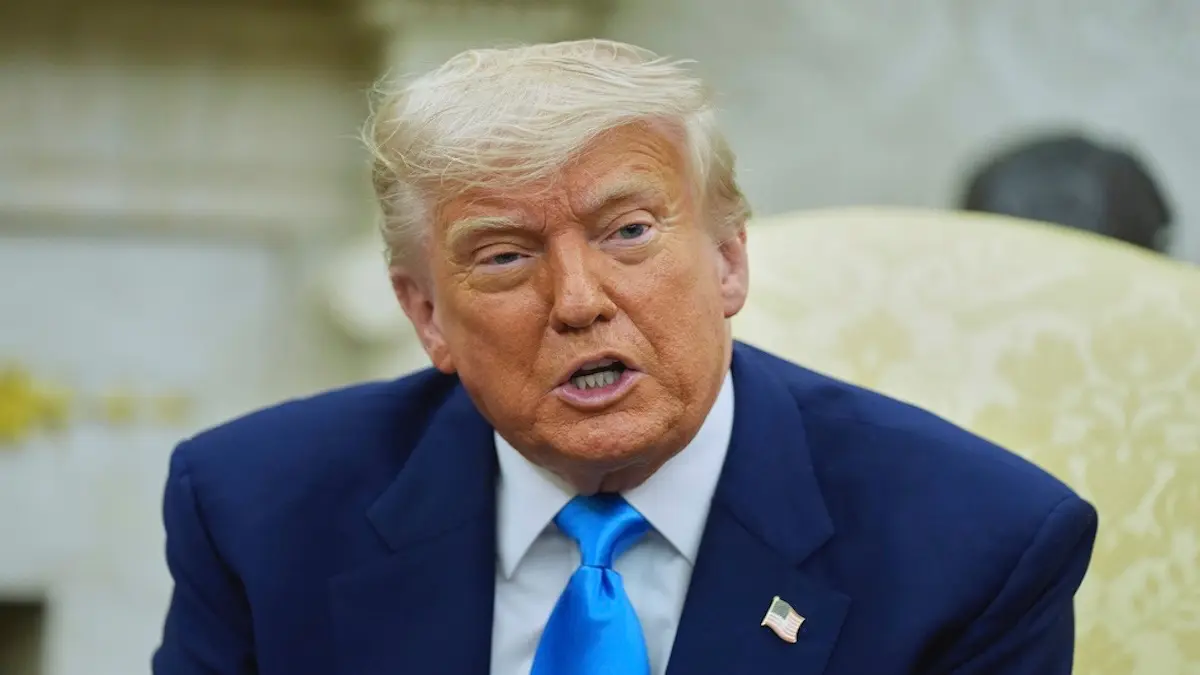Updated 14 June 2025 at 09:03 IST
Donald Trump Clears Nippon Steel’s $14.9 Billion Deal to Acquire US Steel After Security Agreement
President Donald Trump has approved Nippon Steel’s $14.9 billion acquisition of US Steel, ending an 18-month battle marked by union pushback, political opposition, and national security scrutiny. The deal includes $11 billion in US investments and a “golden share” for the US government, sparking debate over future control and oversight.
- Republic Business
- 4 min read

In a major development for global steel markets and U.S. industrial policy, US President Donald Trump has approved Nippon Steel's $14.9 billion bid to acquire US Steel, a move that caps an 18-month rollercoaster involving union resistance, bipartisan political opposition, and national security reviews.
Trump signed an executive order on Friday authorising the acquisition, contingent upon the companies signing an agreement with the US Treasury Department to address national security concerns. Hours later, Nippon Steel and U.S. Steel confirmed they had fulfilled this requirement, securing the final go-ahead.
“We look forward to putting our commitments into action to make American steelmaking and manufacturing great again,” the companies said in a joint statement, thanking Trump for his approval.
What’s in the Deal: $11 Billion Investment and a Golden Share
The merger deal includes a commitment by Nippon Steel to invest $11 billion in the US by 2028, in addition to plans for a further $3 billion in capital expenditure post-2028 for a new steel mill. According to a spokesperson for Nippon Steel in Tokyo, the Japanese company will acquire a 100% stake in the iconic American firm.
Notably, the companies have agreed to issue a “golden share” to the US government, though details remain scarce. The golden share reportedly grants Washington veto power over key operational decisions, sparking debate over how much real control the US will wield.
US Senator David McCormick of Pennsylvania, home to U.S. Steel's headquarters, previously stated that the golden share would ensure the government has final say over critical decisions. However, ambiguity around its exact terms has left room for scepticism.
Political Whiplash: From Biden’s Block to Trump’s Nod
The deal’s approval marks a stark contrast to its fate under the Biden administration. In one of his final acts before leaving office in January, President Joe Biden blocked the merger, citing unresolved national security risks.
The companies responded by suing the US government, claiming the review was biased—an allegation the White House denied.
Things took a turn when Trump returned to office and initiated a fresh 45-day national security review in April. While Trump had made mixed public statements—ranging from welcoming a simple "investment" to insisting on US control via the golden share—his final approval signals a more favourable stance toward the foreign acquisition.
Union Pushback and Investor Anxiety
Since its proposal in December 2023, the bid has faced stiff resistance from the United Steelworkers union. The labor group opposed the takeover over concerns about domestic job losses and long-term control of strategic American industries.
The political climate around the deal was further intensified by its timing—both Biden and Trump publicly opposed the deal during the 2024 campaign season as they competed for support in the swing state of Pennsylvania.
Investor sentiment has also been volatile. Shares of U.S. Steel dipped earlier on Friday after a Nippon Steel executive told Japan’s Nikkei newspaper that the company required a “degree of management freedom” to proceed, seemingly at odds with Trump’s assertion that the US would remain in control.
Strategic Stakes for Japan and the US
For Nippon Steel, the world’s fourth-largest steel producer, the acquisition provides a strategic foothold in the U.S. market, especially as global trade tensions push countries to localise key industrial sectors.
“The government of Japan welcomes the US government’s decision, as we believe this investment will enhance innovation capabilities in the US and Japanese steel industries,” said Yoji Muto, Japan’s Economy, Trade and Industry Minister.
Tokyo also has its eyes on a broader trade pact with the US, with officials hoping the deal strengthens economic ties ahead of the Group of Seven summit, where Prime Minister Shigeru Ishiba is scheduled to meet Trump.
Read More - US Steel Tariffs Rattle Samsung and LG’s Home Appliance Business
What’s Next?
With regulatory approvals secured, the focus now shifts to implementation. The $11 billion investment pledge, the issuance of a golden share, and further capital spending are being closely watched by lawmakers, unions, and industry insiders.
Meanwhile, Nippon Steel sidesteps a $565 million breakup fee it would have owed had the deal failed, and positions itself to benefit from US infrastructure projects—all while its international rivals face steep 50% tariffs.
(With Inputs From Reuters)
Advertisement
Published By : Gunjan Rajput
Published On: 14 June 2025 at 09:00 IST
